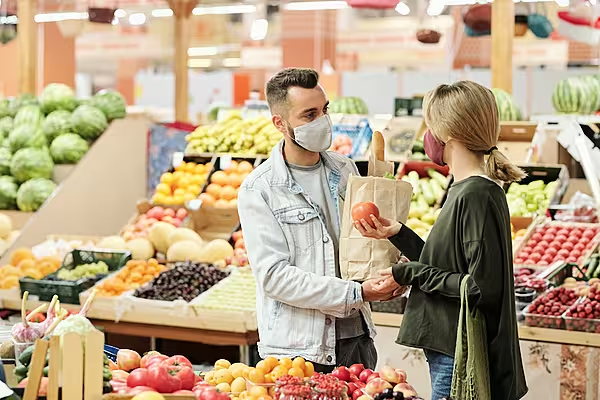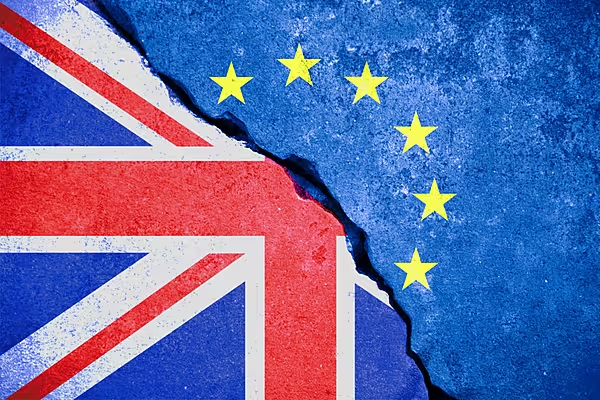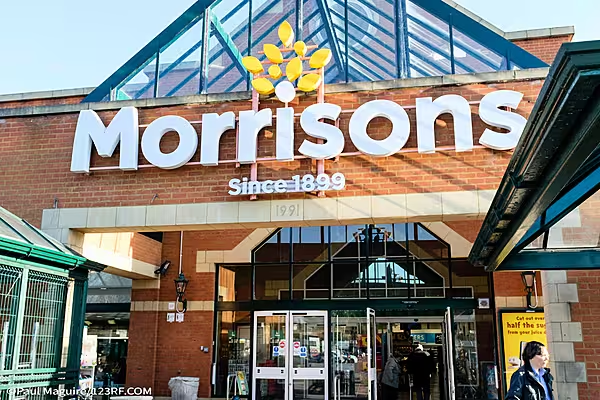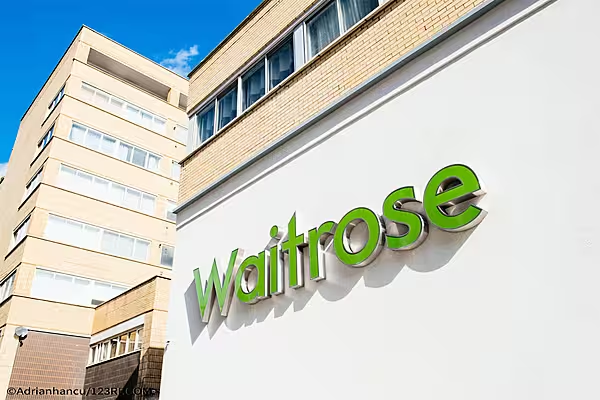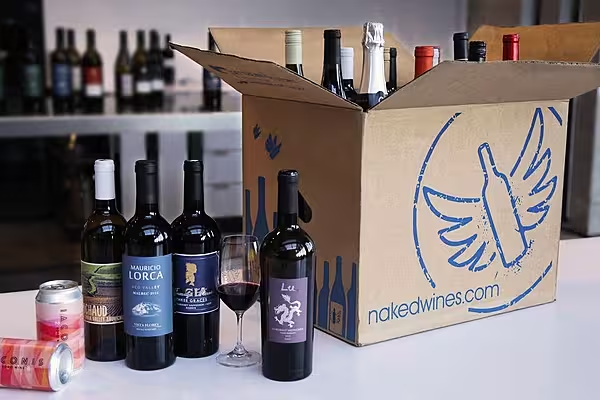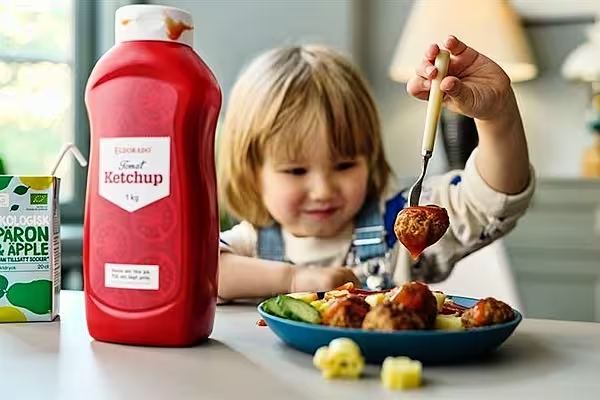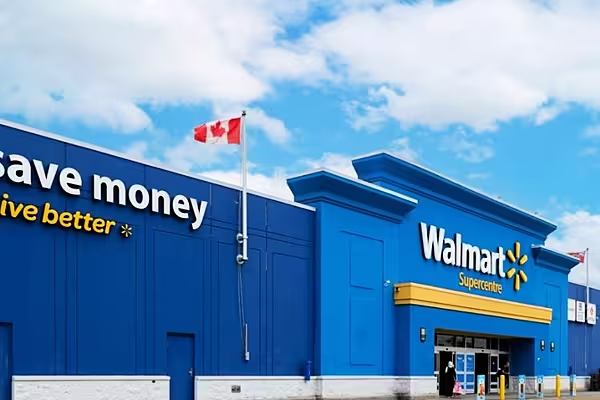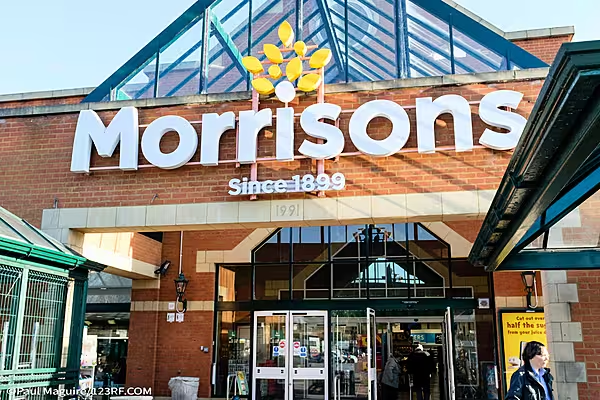Global food supply disruption due to Russia's invasion of Ukraine plus soaring energy and fuel costs could slow down growth in supermarket volumes, NielsenIQ said on Tuesday.
The market researcher said inflation at UK supermarkets was running at 2.7%, the highest since September 2013.
"Inflation at UK supermarkets continues to grow and as we exit COVID-19 new challenges lie ahead amid the threat of disruption to global food supply and soaring energy and fuel costs that will impact shopper budgets," it said.
NielsenIQ said grocery sales at UK supermarkets fell 3.4% over the four weeks to 26 February year-on-year. Sales were, however, up 4.4% compared with pre-COVID levels two years ago.
The online share of sales fell back to 12.5% from 13.1% in January.
Fastest Growing Food Retailer
The researcher said Marks & Spencer maintained its position as Britain's fastest growing food retailer over the last 12 weeks with sales up 12.2% year-on-year.
Its data also showed market leader Tesco as the best performer of Britain's so-called 'big four' grocers.
Tesco's 1.5% sales decline year-on-year outperformed Sainsbury's, Asda and Morrisons, which had falls of 3.7%, 4.8% and 7.7% respectively.
German-owned discounters Lidl and Aldi saw growth of 8.6% and 6.1% respectively.
The NielsenIQ data echoed figures from rival market researcher Kantar published last week. However, Kantar does not include M&S in its monthly reports.
Elsewhere, online's share of UK grocery sales rose to 13.1% in January, up from 11.3% in December, the highest share that online has commanded in the UK grocery market since July 2021.
News by Reuters, edited by ESM – your source for the latest Retail news. Click subscribe to sign up to ESM: European Supermarket Magazine.
